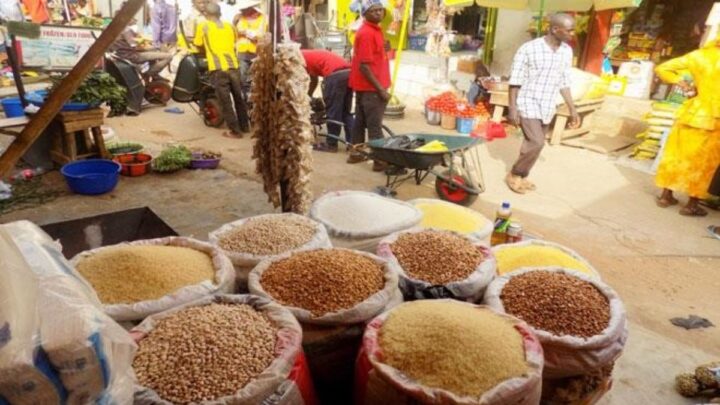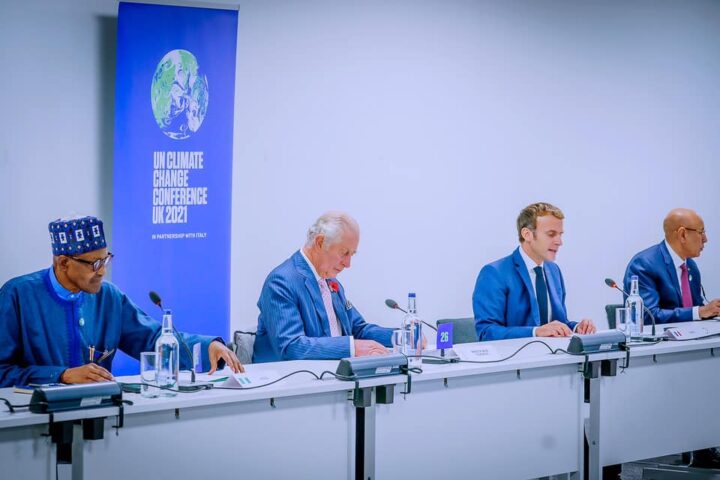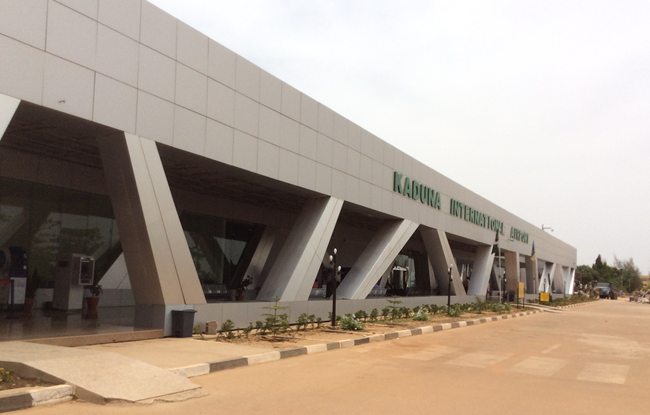BY F. AJIBOLA DALLEY
In May 2013 at the 50th anniversary of the African Union, in affirmation of their commitment to forging a new path for inclusive and sustainable growth and development, heads of state and governments of African nations signed the 50th Anniversary Solemn Declaration.
The declaration represented Africa’s commitment toward a pan-African vision of “An integrated, prosperous and peaceful Africa, driven by its own citizens, representing a dynamic force in the international arena”. Agenda 2063 represented the blueprint for the continent’s plans for achieving this vision within a fifty-year period from 2013 to 2063.
Encapsulated within Agenda 2063 is Africa’s aspirations for the future as well as 15 key flagship programmes designed to boost Africa’s economic growth and development, and they include the following:
Advertisement
- Integrated high-speed train network
- Formulation of an African commodities strategy
- Establishment of the African Continental Free Trade Area (AfCFTA)
- The African passport and free movement of people
- Silencing the guns by 2020
- Implementation of the Grand Inga Dam Project
- Establishment of a Single African Air-Transport Market (SAATM)
- Establishment of an annual African economic forum
- Establishment of the African financial institutions
- The Pan-African e-Network
- Africa outer space strategy
- An African virtual and e-University
- Cyber security
- Great African museum
- Encyclopaedia Africana.
The AfCFTA agreement — being one of the flagship programmes and the subject of this article — entered into force on May 30, 2019, with the aim of creating a single, liberalised market for the free movement of goods, services, capital and natural persons and the facilitation of investments on the initiatives of state parties and regional economic communities. In tandem, a continental customs union would be created along with plans for social economic and industrial development, structural transformation, and enhanced competitiveness all to be achieved through diversification, regional value chain enhancement, agricultural development and food security.
To achieve these lofty objectives state parties are encouraged to:
- Eliminate tariff and non-tariff barriers on the trade in goods and liberalise trade in services,
- Co-operate on investments, intellectual property rights, competition policy, all trade-related areas, custom matters, and the implementation of trade facilitation measures.
Also expected was the establishment of a mechanism for the settlement of disputes, as well as the establishment of institutions for the implementation and administration of AfCFTA.
Advertisement
At the time of its entry into force in 2019, it was widely believed that AfCFTA would promote an increase in intra-African trade from 14.6% in 2017 to 52% by 2022. Currently trade amongst African nations is far short of these expectations, however, these shortcomings are certainly not attributable to the will or indeed lack of it by member states of the African Union.
The blame falls squarely on the scourge of the COVID-19 pandemic. Incessant lockdowns, border closures, worldwide business slow down and supply chain pressures left in its wake economic recession, a significant decline in foreign investment and a reduction in trade within and outside Africa. Nevertheless, African nations have exhibited promising signs of the sincerity of purpose, and there is no doubt in the words “AfCFTA is here and here to stay”. Therefore, this article seeks to highlight the milestone achievements in the AfCFTA programme to date.
Ratification
On May 30, 2019, being the date of the AfCFTA ratification 24 out of the 55 countries in Africa, deposited their instruments of ratification and as of July 2019, an impressive 54 countries signed the agreement. Today the number of countries that have deposited their instruments of ratification has increased to 41, which represents 76% of the nations in Africa.
Advertisement
Upon ratification, the AfCFTA agreement itself along with the Protocols on Trade in Goods and Trade in Services and Dispute Resolution were adopted.
On August 17, 2020, the AfCFTA Secretariat in Accra, Ghana, was opened for business and on January 1, 2021, trade under the AfCFTA agreement was launched, although no actual trade has taken place.
Trade in Goods
Article 2(2) of AfCFTA’s protocol on trade in goods seeks the progressive elimination of tariffs. As part of the trade liberalisation process, import duties or charges having the equivalent effect on goods originating from the territory of any other state parties are to be eliminated.
Advertisement
Under the protocol, member states are required to apply preferential tariffs to goods imported from other state parties in accordance with its schedule of tariff concessions which are required to comply with modalities for tariff liberalisation.
Presently, 44 member states have submitted their tariff offers to the AfCFTA secretariat and have made commitments to substantially liberalise all trade by eliminating tariffs in relation to 97% of tariff lines over a specified period of time. The remaining 3% of the tariff lines are products that are excluded from no reduction in tariffs.
Advertisement
The tariff offers from four customs unions have been received, namely the Economic and Monetary Union of Central Africa (CEMAC), the East African Community (EAC), the Economic Community of West African States (ECOWAS) plus Mauritania, and the Southern African Customs Union (SACU). Together, these four customs unions account for more than two-thirds of all the offers submitted.
Though negotiations concerning tariff lines are yet to be concluded, there are agreed modalities for tariff liberalisation and they are set out as follows:
Advertisement
- Tariffs on 90% of goods that comprise non-sensitive goods are to be eliminated by least developed countries and non-least developed countries within ten and 5 years respectively.
- Tariffs on 7%of goods which comprise sensitive goods are to be eliminated within ten years for non-least developed countries and thirteen years for least developed countries.
- 3% of goods not exceeding 10% of total intra-Africa imports can be excluded from trade liberalisation.
On February 12, 2019, at the 32nd ordinary session of the assembly of the African Union, the recommendations by the African Union ministers of trade, were endorsed. The recommendations were with respect to the designation of sensitive goods and goods excluded from trade liberalisation, on the basis of the following criteria:
- Food security;
- National security;
- Fiscal revenue;
- Livelihood; and
- Industrialisation.
Trade in services
Advertisement
With regard to negotiations on trade in services, the AfCFTA secretariat has received 46 offers submitted by state and non-state parties. These offers cover the priority sectors, as identified during the 31st ordinary session of the assembly of the African Union, namely: business, communication, financial, tourism and transport services sectors.
As is the case with the protocol on trade in goods, the protocol on trade in services does not preclude state parties from entering into preferential agreements with third parties provided such agreements do not impede the objectives of the protocol.
Rules of Origin
Article 13 of the AfCFTA protocol on trade in goods states that the eligibility of goods for preferential treatment under the AfCFTA agreement is dependent on the criteria and conditions concerning the rules of origin (Annex 2 on rules of origin) and in accordance with the appendix to be developed on general and product-specific rules. Hence, concluding negotiations on rules of origin is a crucial part of ensuring transparency and the success of trade in goods under the AfCFTA regime.
Although negotiation on rules of origin is approximately 87% complete, member states are still undergoing prolonged discussions on the issue. Negotiations on items such as automobiles, textiles, clothing and sugar are yet to be concluded.
Phase II negotiations
Significant progress on Phase II negotiations on intellectual property rights, competition policy, sustainable investment, e-commerce and the general framework for trade in services is yet to be made due to the delay in the conclusion of Phase I negotiations on rules of origin.
All relevant committees were established on May 3, 2021, in order to facilitate negotiations and negotiations are expected to conclude by the end of 2022.
The dispute settlement mechanism
Article 20(1) of the AfCFTA agreement establishes a dispute settlement mechanism for the settlement of disputes arising between state parties. The protocol on rules and procedures on the settlement of disputes goes further to establish the dispute settlement body by virtue of Article 5 of the protocol. State parties have been invited to nominate panellists and once nominees are announced the mechanism will be ready for commencement.
Generally, despite the COVID-19 setback, it must be said that considerable progress has been made not only in relation to the AfCFTA agreement but with regard to all the flagship programmes under Agenda 2063.
Other flagship programmes of Agenda 2063
Single African Air Transport Market (SAATM): It was launched in 2018, and seeks to create a unified air transport market that will liberalise air transport, promote African integration and address the need for improved logistic infrastructure. So far 35 countries have ratified the solemn commitment for the establishment of SAATM.
The African passport and free movement of people: To foster the free movement of people, intra-Africa trade and travel, member states adopted the protocol to the treaty establishing the African economic community relating to the free movement of persons, right of residence and right of establishment at the 30th ordinary session of the assembly of the African Union, on January 29, 2018. So far, 55 countries have signed the protocol while only four (4) have ratified it.
The African integrated high-speed railway network: The African integrated high-speed railway network (AIHSRN) plans to connect the capital cities of all member States via high-speed trains, and to date, the following milestones have been achieved:
- Development of an implementation plan for the AIHSRN
- A memorandum of understanding on the promotion of cooperation in railways, roads, regional aviation networks, and industrialisation fields between China and Africa was signed in January 2015 between the African Union and the National Development and Reform Commission of China.
African Commodities Strategy: On September 3, 2021, the African Union commodity strategy and action plan were adopted during the 3rd ordinary session of the specialised technical committee of trade, industry and minerals.
The aim of the strategy is simply to develop and add value to African commodities, improve diversification, integrate African commodities into the global supply chains and achieve continent-wide industrialisation.
The Pan-African Payment and Settlement System (PAPSS): The Pan-African Payment and Settlement System (PAPSS) was formally launched on January 13, 2022, in conjunction with Afreximbank. At the onset, the programme is being piloted in six African countries and is likely to expand to the rest of Africa in the following months.
The PAPSS marks a significant milestone in fulfilling the goal of trade facilitation across the continent by addressing the issue of liquidity in payments involving multiple currencies. The system is bound to minimise risks associated with sourcing foreign exchange needed for trade. It is expected that African traders are likely to save approximately five billion dollars annually in currency conversions.
Conclusion
According to Wamkele Mene, the secretary-general of the AfCFTA, the future success of AfCFTA depends on certain pillars which can be summarised as follows:
- The establishment of a trade finance facility to provide funding for SMEs
- The establishment of the African trade gateway to facilitate access to information on trading within the AfCFTA regime
- The AfCFTA adjustment facility to enable member states to adjust to the loss of revenue from tariffs
- The continental rollout of the PAPSS
- The establishment of special economic zones (SEZs) to promote economic diversification.
In the end, the success of AfCFTA and the flagship programmes under Agenda 2063 lies in the continued will and commitment of the state parties.
Dalley (SAN, FCIArb) is an arbitrator and partner in the law firm of GRF Dalley and Partners
Views expressed by contributors are strictly personal and not of TheCable.
Add a comment






